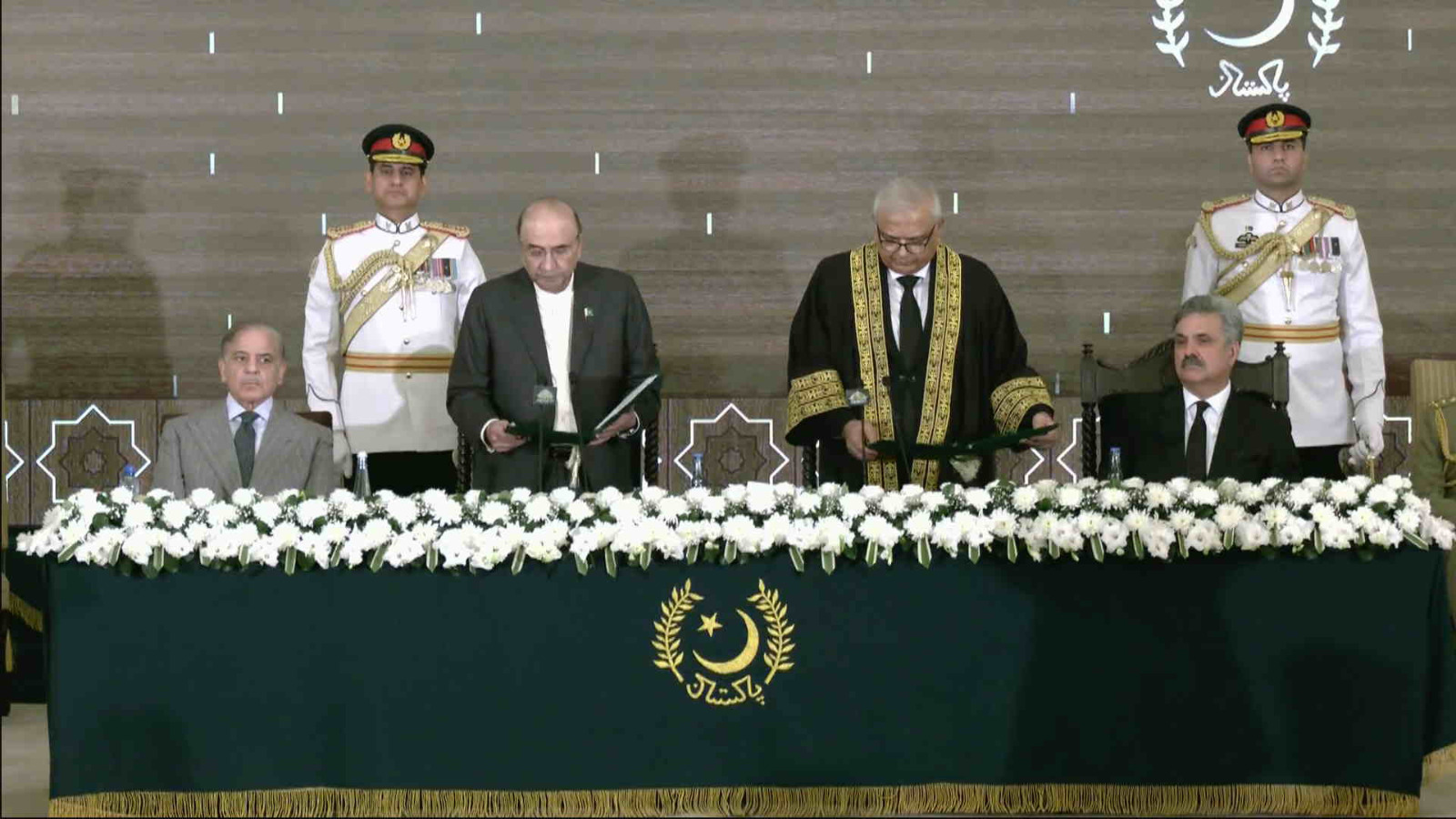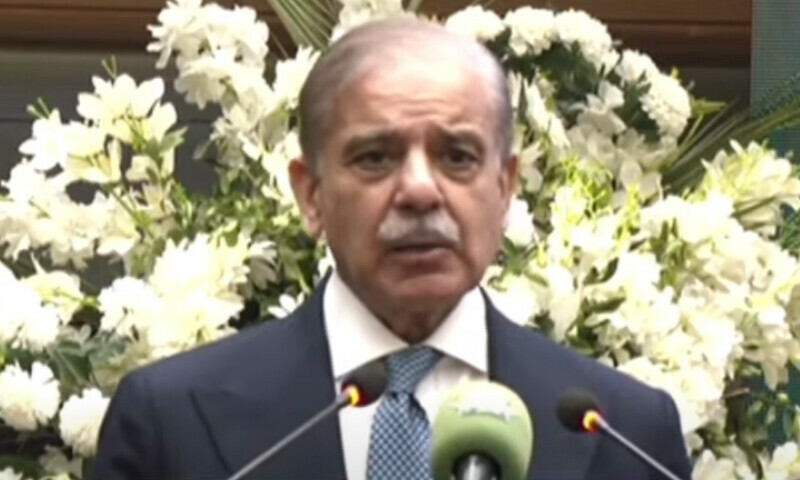PTBP Web Desk
Pakistan’s judicial system, Justice Aminuddin Khan was sworn in on Tuesday as the first Chief Justice of the newly established Federal Constitutional Court (FCC). The oath-taking ceremony took place at the Aiwan-e-Sadr in Islamabad, where President Asif Ali Zardari personally administered the oath to Justice Aminuddin, marking a milestone in the evolution of Pakistan’s constitutional jurisprudence.
The event was attended by a high-profile gathering, reflecting the importance of this occasion. Prime Minister Shehbaz Sharif, Field Marshal Asim Munir, the chiefs of the Pakistan Air Force and Pakistan Navy, Chief Justice Yahya Afridi, Speaker of the National Assembly Ayaz Sadiq, Chairman Senate Yousaf Raza Gilani, federal ministers, parliamentarians, and PPP Chairman Bilawal Bhutto-Zardari were all present. The ceremony also saw senior judges and other key national figures, emphasizing the significance of establishing the Federal Constitutional Court.
The newly formed Federal Constitutional Court Pakistan is designed to strengthen constitutional governance and ensure that the supremacy of the Constitution is upheld across all branches of the state. The creation of this court is seen as a major step toward reinforcing judicial independence and maintaining national stability. President Zardari, in his remarks during the ceremony, highlighted the court’s pivotal role in protecting democratic institutions and ensuring that constitutional provisions are implemented faithfully.
Prime Minister Shehbaz Sharif echoed the importance of judicial autonomy, emphasizing that the independence of the judiciary must be protected to maintain the rule of law. The Prime Minister stressed that the FCC would serve as a cornerstone for safeguarding Pakistan’s constitutional framework while delivering swift and impartial justice.
Following his oath, Chief Justice Aminuddin Khan pledged to uphold the Constitution and strengthen the delivery of justice across the country. He affirmed his commitment to ensuring that the Federal Constitutional Court Pakistan operates as a fair, independent, and transparent institution. His oath-taking symbolizes the beginning of a new era in the country’s judicial history, reflecting the importance of constitutional oversight in maintaining balance between the executive, legislative, and judicial branches.
Justice Aminuddin’s appointment was formally approved by President Zardari following the advice of the Prime Minister, and the official notification was subsequently issued by the Ministry of Law. Prior to this role, Justice Aminuddin also heads the constitutional bench formed under the 26th Constitutional Amendment, further underscoring his experience and expertise in handling complex constitutional matters.
In addition to Justice Aminuddin, preparations are in place for the oath-taking ceremony of six additional judges who will serve on the Federal Constitutional Court. The ceremony is scheduled to be held in the open area between the Judges’ Block and the Administration Block of the Islamabad High Court, a symbolic choice highlighting the court’s accessibility and transparency.
Chief Justice Aminuddin is expected to administer the oath to the six judges personally, completing the first full bench of the court. This step marks the operational readiness of the Federal Constitutional Court Pakistan, allowing it to commence its constitutional and judicial functions effectively.
The Federal Constitutional Court will play a critical role in interpreting constitutional provisions, reviewing legislative and executive actions, and resolving disputes between federal and provincial governments. The court is also expected to strengthen judicial accountability, ensuring that laws and regulations align with constitutional principles.
By establishing the FCC, Pakistan aims to create a specialized constitutional forum that can expedite cases with national significance, especially those involving human rights, governance issues, and federal-provincial disputes. The court’s formation is expected to bring greater clarity and consistency to the judicial process, particularly on matters affecting the nation’s constitutional order.
The establishment of the Federal Constitutional Court Pakistan has attracted attention not only within the country but also among international legal observers. Experts have noted that the FCC represents a significant step toward modernizing Pakistan’s judiciary, ensuring that constitutional disputes are addressed by a dedicated body with the authority to issue binding rulings.
The creation of this court aligns with global trends where constitutional courts serve as key instruments for protecting fundamental rights and maintaining checks and balances between branches of government. By swearing in Justice Aminuddin Khan as the first Chief Justice, Pakistan demonstrates its commitment to strengthening judicial institutions and upholding democratic norms.




